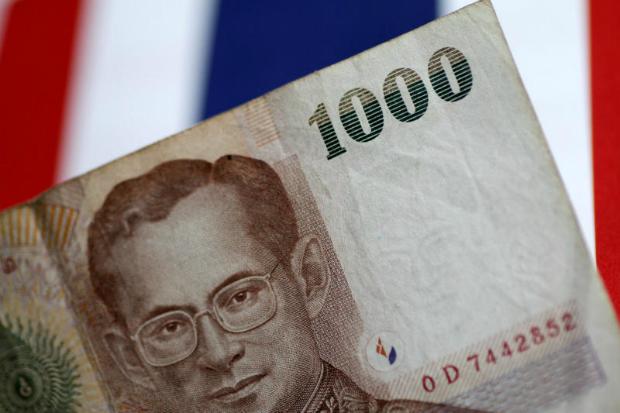Asian currencies – except baht – slip after missile
Most emerging Asian currencies slipped on Tuesday after North Korea fired a missile over northern Japan, fuelling worries of fresh tension between Washington and Pyongyang.
North Korea has conducted dozens of ballistic missile tests under young leader Kim Jong-Un, but firing projectiles over mainland Japan is its first since 2009. North Korea had threatened earlier this month to fire missiles into the sea near the US Pacific territory of Guam, a host to major US military installations, after President Donald Trump warned Pyongyang would face “fire and fury” if it threatened the United States.
“Markets are on the defensive today… This (missile launch over Japan) forced some short-covering in the dollar that was heavily sold after Jackson Hole last Friday,” said Philip Sung Seng Wee, a senior currency economist at DBS Bank Ltd. “Everyone is waiting for the United States and China to respond, and wary of any fiery rhetoric from Trump escalating tensions.”
Investors are looking to how Trump will react to North Korea, and to his push for tax reforms. He is expected to begin a major effort this week to convince the public of the need for them.
The Korean won fell 0.5% and was the worst performer in the region. In the spot market, the onshore yuan opened at 6.6240 per dollar and was changing hands at 6.6087 at midday, 37 pips softer than the Monday late session close but 0.31% stronger than the midpoint.
Bucking the trend, the Thai baht rose to its highest since April 30, 2015, and was headed for a fourth straight session of gains. Thailand’s central bank said on Tuesday there was no need at present to introduce capital controls or additional measures to curb the baht’s strength.
The South Korean won dropped after North Korea fired a missile that flew over the northern region of Japan, escalating tensions on the Korean peninsula. South Korea’s finance ministry said it will monitor financial markets and act to stabilise markets if needed after Pyongyang’s latest missile test, which led to a fresh bout of risk-aversion.
The won stood at 1,125 against the dollar, down 0.5% from Monday’s close.
Source: http://www.bangkokpost.com/business/news/1315164/asian-currencies-except-baht-slip-after-missile


 English
English




